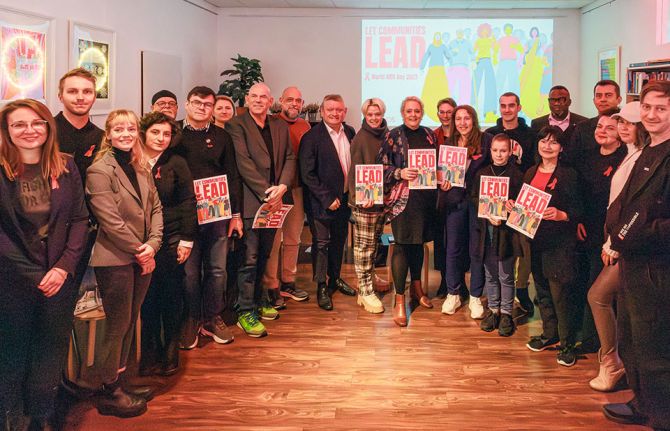
Feature Story
UNAIDS pledges to help ‘make the money work’ for Global Fund
27 September 2007
27 September 2007 27 September 2007
As world Leaders joined in Berlin, Germany on Thursday 27 September to announce their financial pledges to the Global Fund to Fight AIDS, Tuberculosis, and Malaria for the next three years, UNAIDS Executive Director Peter Piot underlined the United Nations commitment to “make the money work – to help make Global Fund grants as effective and beneficial as possible on the ground.”
“UNAIDS is an important partner to the Global Fund, providing essential support for its work,” he said.
In his statement to the participants of the Global Fund’s replenishment conference, taking place in Berlin, Dr Piot emphasized the urgent need for an adequately funded large-scale AIDS response now, in order to avoid even higher costs in the future.
“There are so many challenges facing the developing world that some may ask why fighting HIV is a priority,” he said. “The answer is threefold – the cost in lives lost has been tremendous, the cost of saving lives will only increase as time goes on without an adequate response, and, finally, responding to AIDS is essential in order to address every other development issue worldwide.”
“The United Nations’ technical expertise, its experience coordinating with countries, and its understanding of working with civil society are key contributors to the work of the Global Fund,” he added.
Dr Piot’s intervention came during the pledging session, where the head of each delegation addressed donors prior to their pledge announcements.
Merkel: ‘Prioritize health, increase coordination’
Opening the day’s events, German Chancellor Angela Merkel spoke in front of an audience of heads of country delegations from around the world, including the United States, United Kingdom, Russian Federation, Australia and the European Commission. Also present were delegates from multilateral organizations, including UNAIDS and the World Health Organization, as well as donors such as (PRODUCT) RED.
In her remarks, Chancellor Merkel urged countries around the world to prioritize tackling the global HIV, tuberculosis, and malaria pandemics. She placed particular emphasis on the need for to increase coordination between bilateral and multilateral programmes, and expressed satisfaction about efforts such as the International Health Partnership, in which UNAIDS is a partner, launched on September 5 in London.
Merkel also called on business leaders in Germany and other countries to establish a new tradition of philanthropy in order to contribute to the Global Fund and other international health efforts. To that end, representatives from leading German businesses met on Wednesday with Global Fund Replenishment Chair Kofi Annan to discuss novel approaches to supporting global health programmes, including the Global Fund.
Other speakers at the opening meeting were Global Fund Executive Director Michel Kazatchkine, Board Chair Rajat Gupta and Vice Chair Elizabeth Makata, and German Development Minister Heidemarie Wieczorek-Zeul. The event was opened by former United Nations Secretary-General and Replenishment Chair Kofi Annan. In his statement, Annan praised the record of the Global Fund, saying that after five years, “we have a fund that is highly successful in spending money to save lives” and that “money channeled through the Global Fund is money invested effectively.”
Since its founding in 2002, more than 60 governments, private foundations, corporations and individuals have contributed more than US$ 11 billion to support the Global Fund. The Global Fund's total funding need for 2008-2010 is US$ 12-18 billion, necessary to support existing grants and fund critical new programmes to fight AIDS, tuberculosis and malaria. Delegates are gathering in Berlin from 26-28 September for the second round of the Global Fund’s biennial meetings to raise funds for its programmes to provide essential HIV, tuberculosis and malaria services in developing countries.



